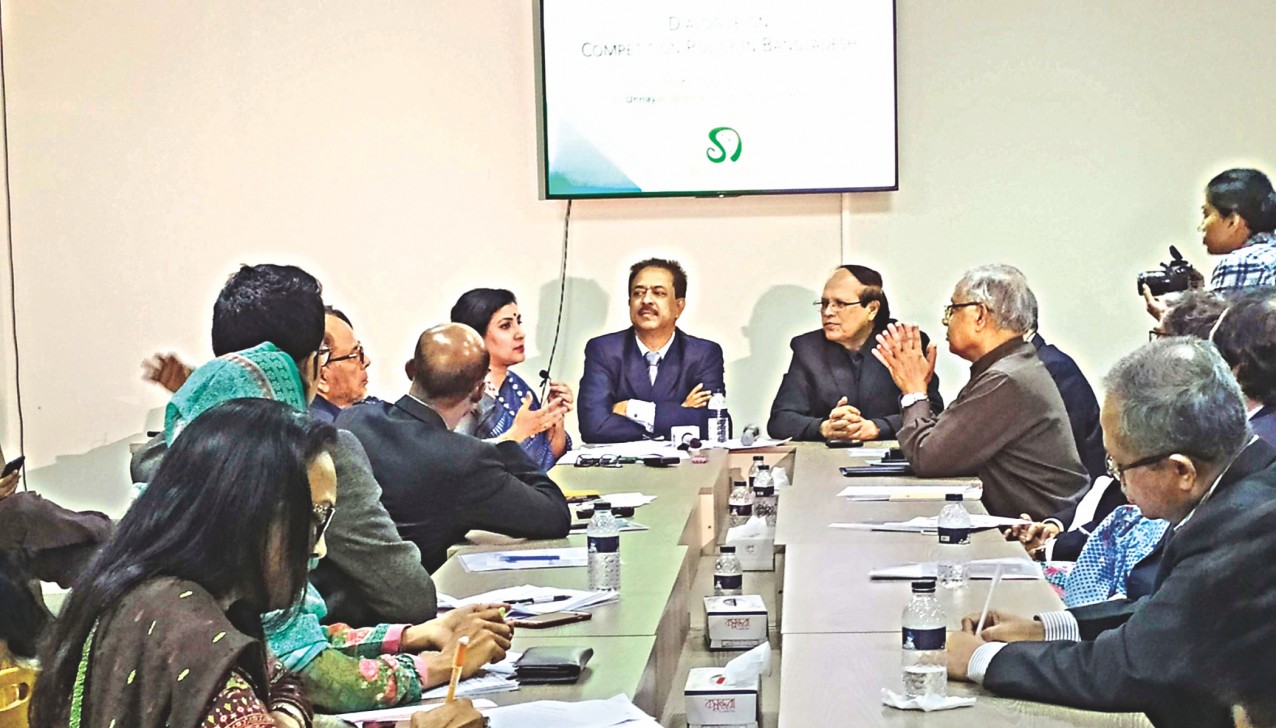Authentic data key to fair competition: analysts

Real-time and authentic data on prices, production and demand are vital to ensure competition in the market, said analysts yesterday.
There have been debates in some areas but that there is a gap in market management has been realised, said Md Mofizul Islam, chairperson of Bangladesh Competition Commission (BCC).
Real-time data is very much needed from both country and global perspectives alongside development of a mechanism through consultations with all stakeholders so that the market remains stable, he said.
The chief of the agency, which started operations three years ago, shared the views at a discussion on competition policy in Bangladesh organised by Unnayan Shamannay at its office.
He said fair competition can boost gross domestic product by 2 percent.
He said the commission was yet to play its role to ensure competition in Bangladesh as it has started operations only three years back.
The newly formed entity has only two officials under its organogram. Other officials working there are either on deputation or have been outsourced.
He said the recruitment process for the BCC’s manpower has been on and 30-35 persons would be hired in a couple of months. Islam said the rules regarding competition were almost at the final stage. “We are working on framing rules on merger and acquisition,” he said.
Unnayan Shamannay Chairman Atiur Rahman said digital means should be used to gather market data related to prices, demand, production and sales by traders, all of which were instrumental to ensuring competition.
“We have no way but to go for digital solution. Digital solutions need to be promoted to ensure efficiency. Updating market data regularly makes tracking anti-competitive practices viable,” he said.
Rahman, also a former governor of Bangladesh Bank, said an agricultural price commission could be established to foster competition. India has formed such a commission. If a price commission is formed in Bangladesh, it will help competition commission, he said.
Rahman said the competition policy and commission has been formed after many days of efforts.
“Implementation of the policy is now the biggest challenge,” he said, adding, “Fair competition in the market boosts economic growth, augments efficiency, enhances productivity and promotes consumer welfare.”
He said ensuring fair competition is also needed to protect small businesses. In Bangladesh, cottage industries employ 54 percent of the workforce followed by micro and small businesses 29 percent.
Medium and large industries account for 17 percent of total employment, he said.
“In case of Bangladesh, the smaller market players are contributing a lot,” he said.
Rahman said financial inclusion was vital to eradicate poverty.
“You have good finance, bad finance and ugly finance. None other than Bangladesh can say how various types of finance are taking place,” he said, adding, “You need to make it serve citizens; the SMEs, not just a banker, or the wealthy or the chosen few and that would be good finance.”
He recommended assessment of challenges in ensuring fair competition, raising of awareness among stakeholders and emphasis on consumer welfare.
Rahman also suggested condemning collusive practices and coordination among regulators to take timely decisions.
AK Enamul Haque, professor of the economics department of East West University, said the role of competition commission was important to facilitate entry of innovators and new entrepreneurs.
There are instances that existing large players cut prices of products and services to prevent entry of new entrepreneurs, he said.
Haque said many trade associations act in favour of restrictive practices. It is not possible to hire a bus on the Dhaka-Cox’s Bazar route other than those plying on that route regularly, he said.
This sort of exclusive arrangement should be stopped, he said.
Nazneen Ahmed, senior research fellow of the Bangladesh Institute of Development Studies (BIDS), said management of market related data, collected and generated by various government agencies, should be improved and the BCC should be given access to that.
She, citing the onion price spiral in the last couple months and her study findings on the onion market, said there was no syndicate in onion and rice markets.
Mostafa Abid Khan, a member of Bangladesh Tariff Commission, also spoke among others.
